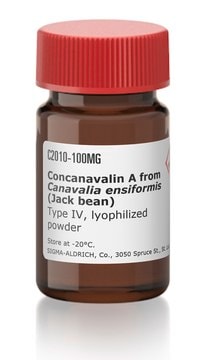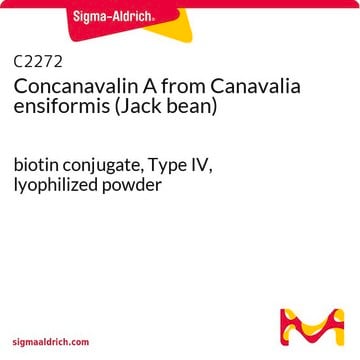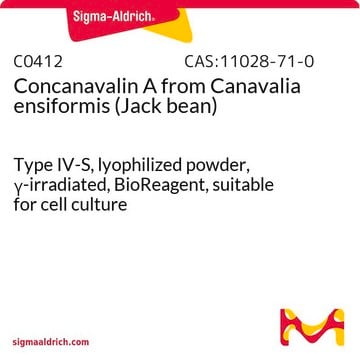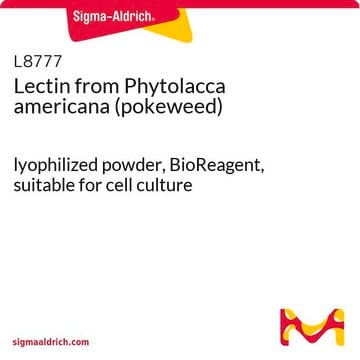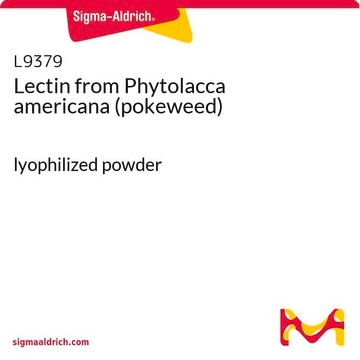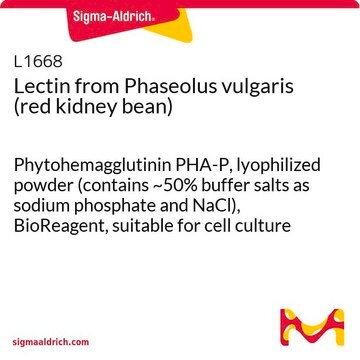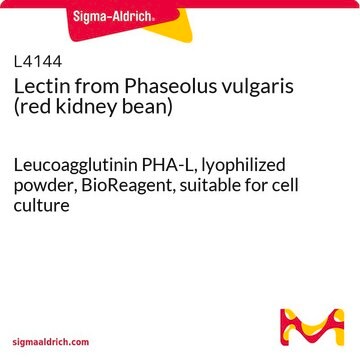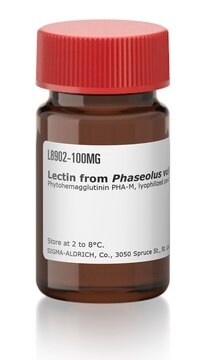C5275
Concanavalin A from Canavalia ensiformis (Jack bean)
Type IV-S, lyophilized powder, aseptically processed, BioReagent, suitable for cell culture
Synonym(s):
Con A
About This Item
Recommended Products
sterility
aseptically processed
Quality Level
type
Type IV-S
product line
BioReagent
form
lyophilized powder
technique(s)
cell culture | mammalian: suitable
impurities
salt (Contains buffer salts and NaCl)
solubility
PBS: 5 mg/mL, slightly hazy
H2O: soluble, slightly hazy
storage temp.
−20°C
Looking for similar products? Visit Product Comparison Guide
Related Categories
General description
Application
- in in vitro cell proliferation assay and cell cycle assessment
- in lymphocyte proliferation
- in splenocyte culturing
Biochem/physiol Actions
Analysis Note
Where reported, agglutination activity is expressed in μg/ml and is determined from serial dilutions in phosphate buffered saline, pH 6.8, containing Ca2+ and Mn2+ of a 1 mg per mL solution. This activity is the lowest concentration to agglutinate a 2% suspension of human erythrocytes after 1 hr incubation at 25 °C.
related product
Signal Word
Danger
Hazard Statements
Precautionary Statements
Hazard Classifications
Repr. 2 - Resp. Sens. 1 - Skin Sens. 1
Storage Class Code
11 - Combustible Solids
WGK
WGK 3
Flash Point(F)
Not applicable
Flash Point(C)
Not applicable
Personal Protective Equipment
Certificates of Analysis (COA)
Search for Certificates of Analysis (COA) by entering the products Lot/Batch Number. Lot and Batch Numbers can be found on a product’s label following the words ‘Lot’ or ‘Batch’.
Already Own This Product?
Find documentation for the products that you have recently purchased in the Document Library.
Customers Also Viewed
Our team of scientists has experience in all areas of research including Life Science, Material Science, Chemical Synthesis, Chromatography, Analytical and many others.
Contact Technical Service